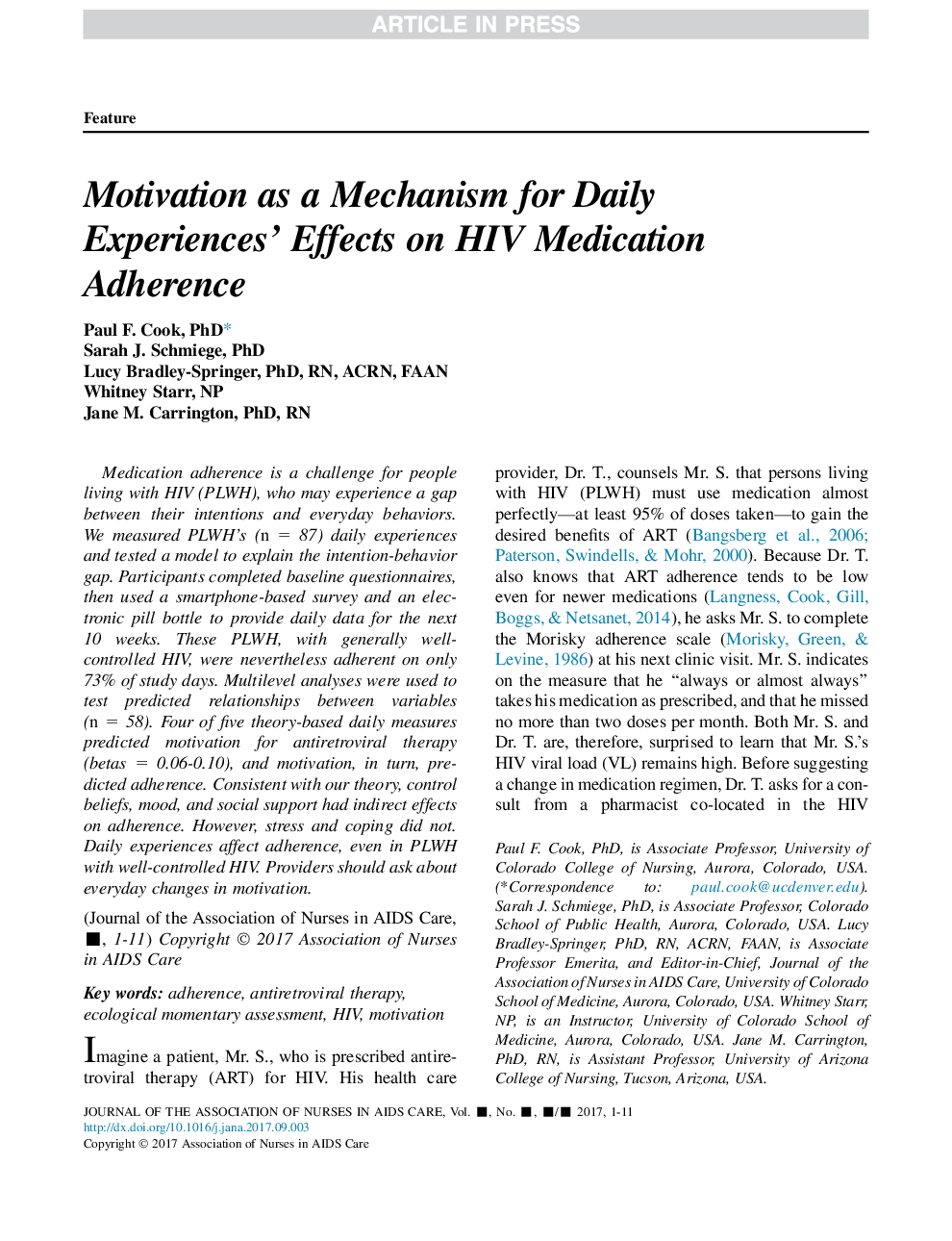| Article ID | Journal | Published Year | Pages | File Type |
|---|---|---|---|---|
| 8572467 | Journal of the Association of Nurses in AIDS Care | 2018 | 11 Pages |
Abstract
Medication adherence is a challenge for people living with HIV (PLWH), who may experience a gap between their intentions and everyday behaviors. We measured PLWH's (n = 87) daily experiences and tested a model to explain the intention-behavior gap. Participants completed baseline questionnaires, then used a smartphone-based survey and an electronic pill bottle to provide daily data for the next 10 weeks. These PLWH, with generally well-controlled HIV, were nevertheless adherent on only 73% of study days. Multilevel analyses were used to test predicted relationships between variables (n = 58). Four of five theory-based daily measures predicted motivation for antiretroviral therapy (betas = 0.06-0.10), and motivation, in turn, predicted adherence. Consistent with our theory, control beliefs, mood, and social support had indirect effects on adherence. However, stress and coping did not. Daily experiences affect adherence, even in PLWH with well-controlled HIV. Providers should ask about everyday changes in motivation.
Related Topics
Health Sciences
Medicine and Dentistry
Infectious Diseases
Authors
Paul F. PhD, Sarah J. PhD, Lucy PhD, RN, ACRN, FAAN, Whitney NP, Jane M. PhD, RN,
